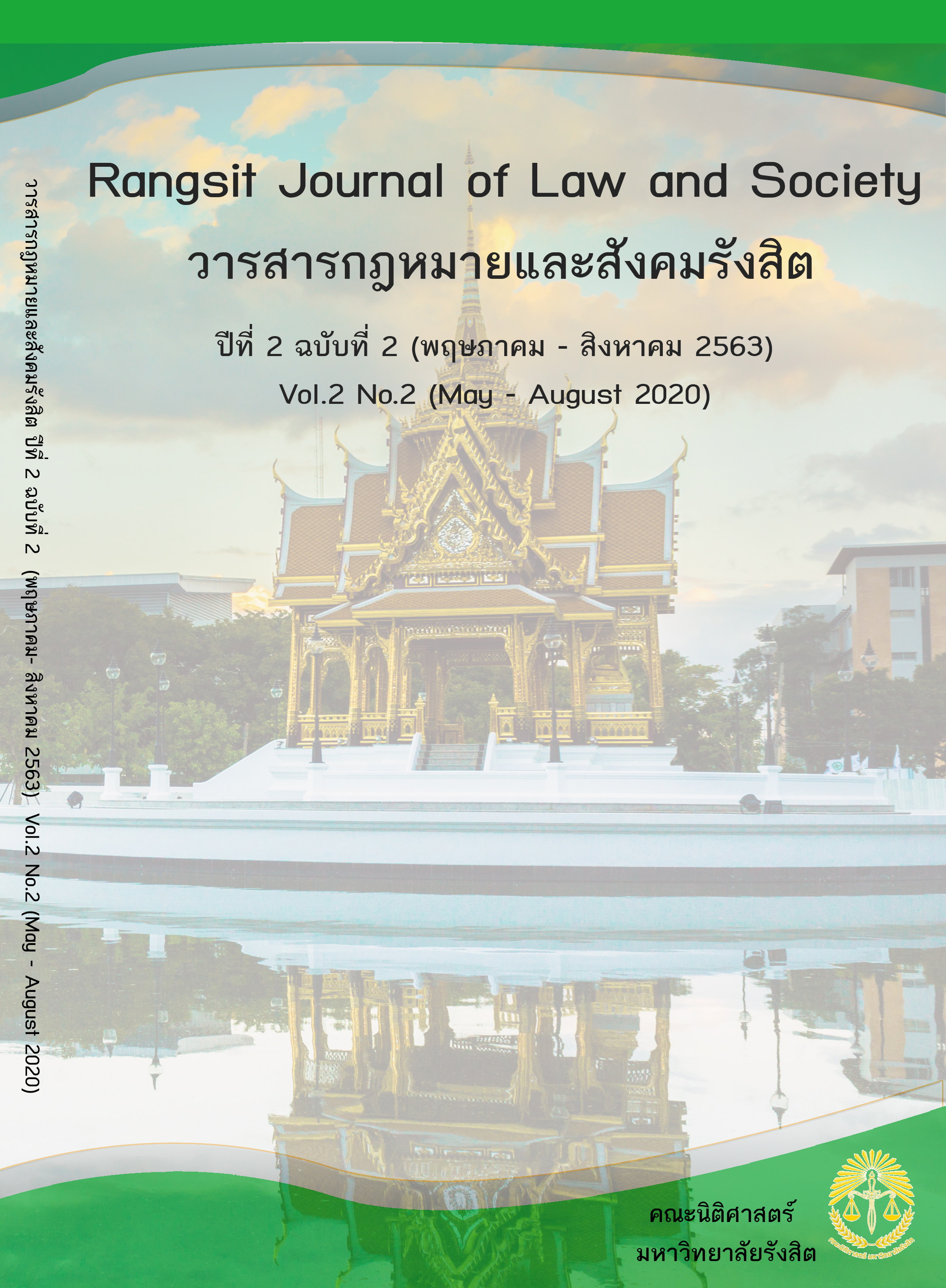นโยบายทางกฎหมายในการลดอันตรายเกี่ยวกับยาเสพติดของสหประชาชาติ
Main Article Content
บทคัดย่อ
ประเทศต่างๆ ในโลกรวมทั้งประเทศไทยต้องประสบปัญหาเกี่ยวกับยาเสพติดให้โทษ ประเทศไทยเป็นประเทศหนึ่งในกลุ่มประเทศที่ไม่ประสบผลสำเร็จในการป้องกันและปราบปรามยาเสพติด ในขณะเดียวกันที่สำคัญพบว่าการกระทำความผิดเกี่ยวกับยาเสพติดเป็นองค์กรอาชญากรรมระหว่างประเทศด้วย สหประชาชาติเห็นความสำคัญจึงจัดให้มีนโยบายทางกฎหมายในการลดอันตรายจากยาเสพติด ซึ่งผู้เสพยาเสพติดถือว่าเป็นผู้ป่วย ไม่มีสถานะเป็นอาชญากรตามกฎหมายอาญาดังที่ปรากฏในกฎหมายอาญาของประเทศไทยปัจจุบันแล้ว กับทั้งองค์การสหประชาชาติได้มีนโยบายทางกฎหมายในการลดอันตรายการจากเสพยาเสพติดที่เหมาะสมออกมาเป็นแนวทางให้ประเทศต่างๆ ด้วย ทิศทางของแนวนโยบายของประเทศต่างๆ จึงมุ่งเน้นการกำหนดให้ผู้เสพเป็นผู้ป่วยซึ่งเป็นกลุ่มคนที่มีจำนวนมาก ให้แยกออกจากกลุ่มที่เป็นอาชญากรเกี่ยวกับยาเสพติดแท้จริงซึ่งอาจได้แก่ นายทุนยาเสพติด ผู้ผลิต ผู้ค้า ผู้ขนส่ง เป็นต้น และให้การช่วยเหลือบำบัดรักษากลุ่มผู้เสพยาเสพติด โดยคำนึงถึงสุขภาพอนามัยส่วนบุคคลและความปลอดภัยในการใช้ยาเสพติด ตลอดทั้งความปลอดภัยของสังคมส่วนรวมด้วย จากแนวนโยบายทางกฎหมายของสหประชาชาติที่มีประสิทธิภาพในการลดอันตรายและแก้ปัญหายาเสพติดนี้เป็นควรนำมาประยุกต์ใช้กับนโยบายทางกฎหมายในประเทศไทย เพื่อแก้ปัญหาการกระทำความผิดเกี่ยวกับยาเสพติด กล่าวคือ มีการลดทอนความผิดอาญา (De-Criminalization) ให้ผู้เสพเป็นผู้ป่วยโดยมีกฎหมายทางการแพทย์และสาธารณสุขมาดูแลและบังคับใช้แทนการดำเนินคดีอาญา และมีการออกกฎหมายเกี่ยวกับการลดอันตรายจากการใช้ยาเสพติดตามแนวทางของสหประชาชาติต่อไป
Article Details

อนุญาตภายใต้เงื่อนไข Creative Commons Attribution-NonCommercial-NoDerivatives 4.0 International License.
เอกสารอ้างอิง
กอบกูล จันทวโร และคณะ. (2559). รายงานการศึกษาและข้อเสนอทางกฎหมายสำหรับผู้กระทำผิดคดียาเสพติด เพื่อเป็นข้อเสนอในการประชุมสหประชาชาติสมัยพิเศษ UNGASS. กรุงเทพมหานคร: สำนักกิจการในพระดำริพระเจ้าหลานเธอ พระองค์เจ้าพัชรกิติยาภา.
จิรวุฒิ ลิปิพันธ์. (2562). การลดความรุนแรงในการบังคับคดียาเสพติด. ใน ดุษฎีนิพนธ์นิติศาสตรดุษฎีบัณฑิต คณะนิติศาสตร์. กรุงเทพมหานคร: มหาวิทยาลัยธุรกิจบัณฑิตย์.
นัทธี จิตสว่าง. (ม.ป.ป.). แนวทางการขับเคลื่อนข้อกำหนดกรุงเทพ (Bangkok Rules)ไปสู่การปฏิบัติในงานราชทัณฑ์ของไทย. กรุงเทพมหานคร: กรมราชทัณฑ์.
Aune B.R. (1990). Maritime drug trafficking: An Underrated Problem. London: School of Economics and Polities Science.
Global Commission on Drug Policy. (2016). Taking Control. Vienna: United Nation.
UNODC. (2016). Our Joint Commitment to the Effectirely Addressing and Countering the world Drug Problem. New York: United Nations.

